Abstract
The effects of mutation, migration, random drift, and selection on the change in frequency of the alleles associated with Huntington disease, porphyria variegata, and lipoid proteinosis have been assessed in the Afrikaner population of South Africa. Although admixture cannot be completely discounted, it was possible to exclude migration and new mutation as major sources of changes in the frequency of these alleles by limiting analyses to pedigrees descendant from founding families. Calculations which overestimated the possible effect of random drift demonstrated that drift did not account for the observed changes in gene frequencies. Therefore these changes must have been caused by natural selection, and a coefficient of selection was estimated for each trait. For the rare, dominant, deleterious allele associated with Huntington disease, the coefficient of selection was estimated to be .34, indicating that this allele has a selective disadvantage, contrary to some recent studies. For the presumed dominant and probably deleterious allele associated with porphyria variegata, the coefficient of selection lies between .07 and .02. The coefficient of selection for the rare, clinically recessive allele associated with lipoid proteinosis was estimated to be .07. Calculations based on a model system indicate that the observed decrease in allele frequency cannot be explained solely on the basis of selection against the homozygote. Thus, this may be an example of a pleiotropic gene which has a dominant effect in terms of selection even though its known clinical effect is recessive.
Full text
PDF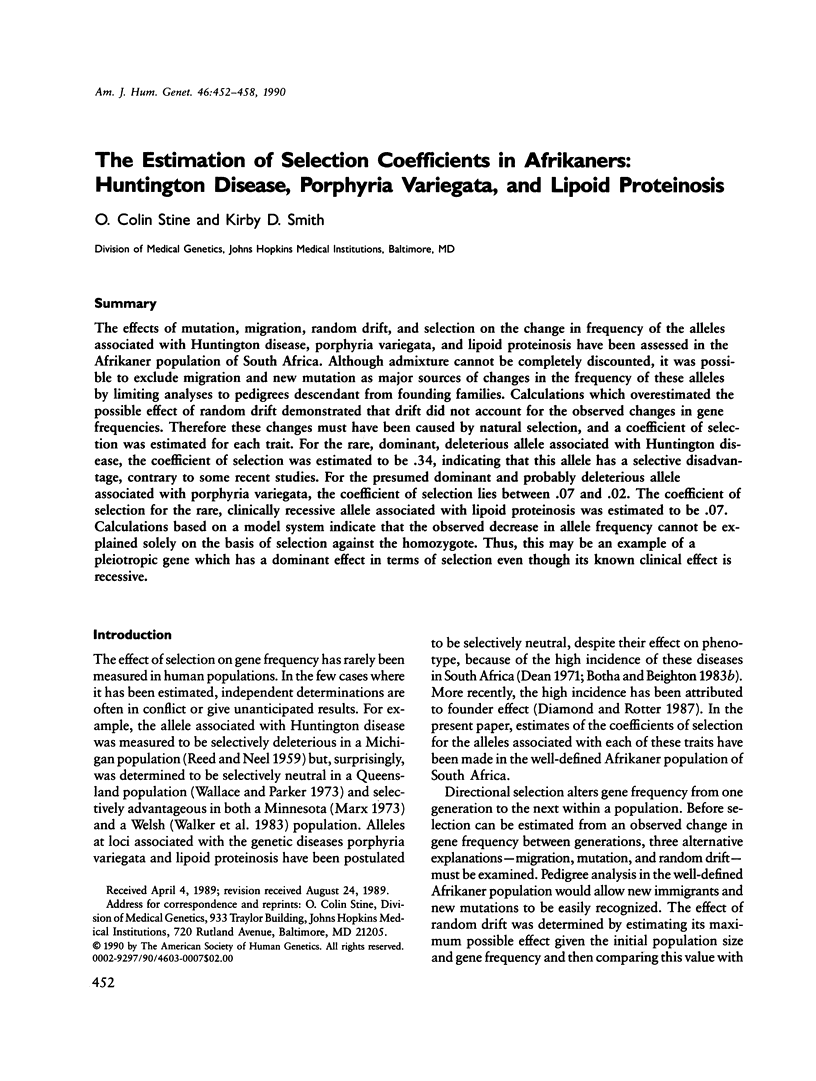

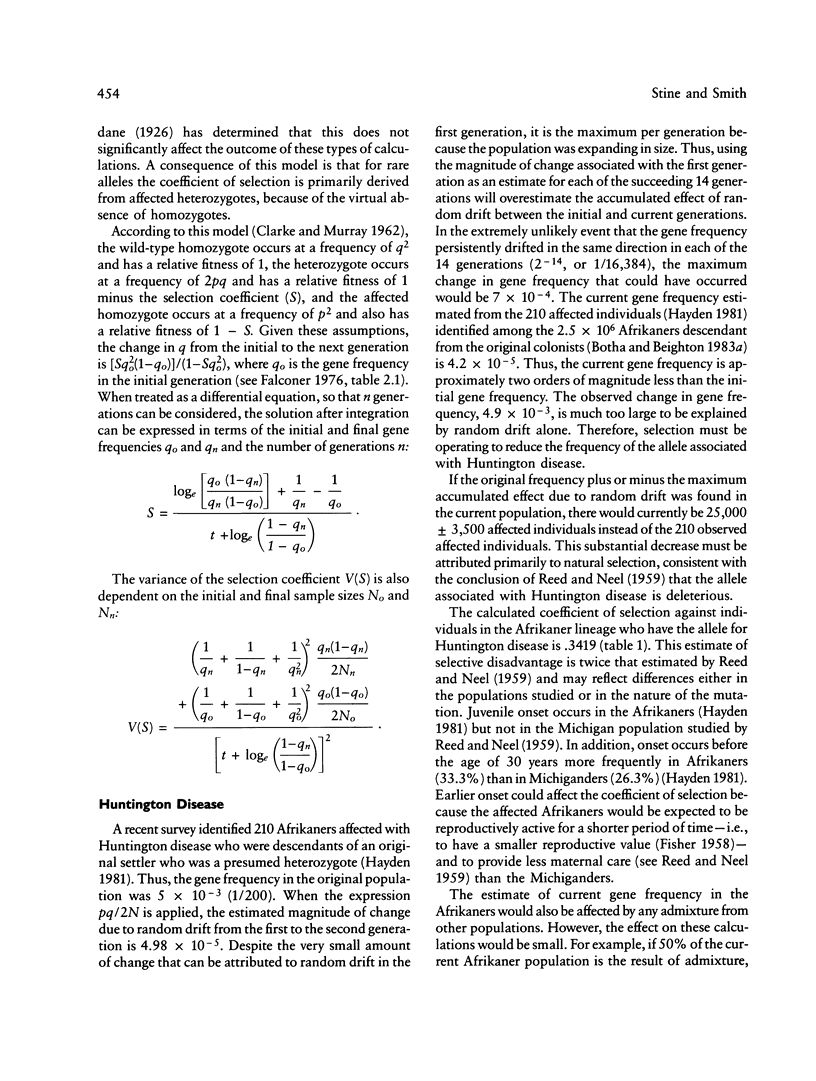
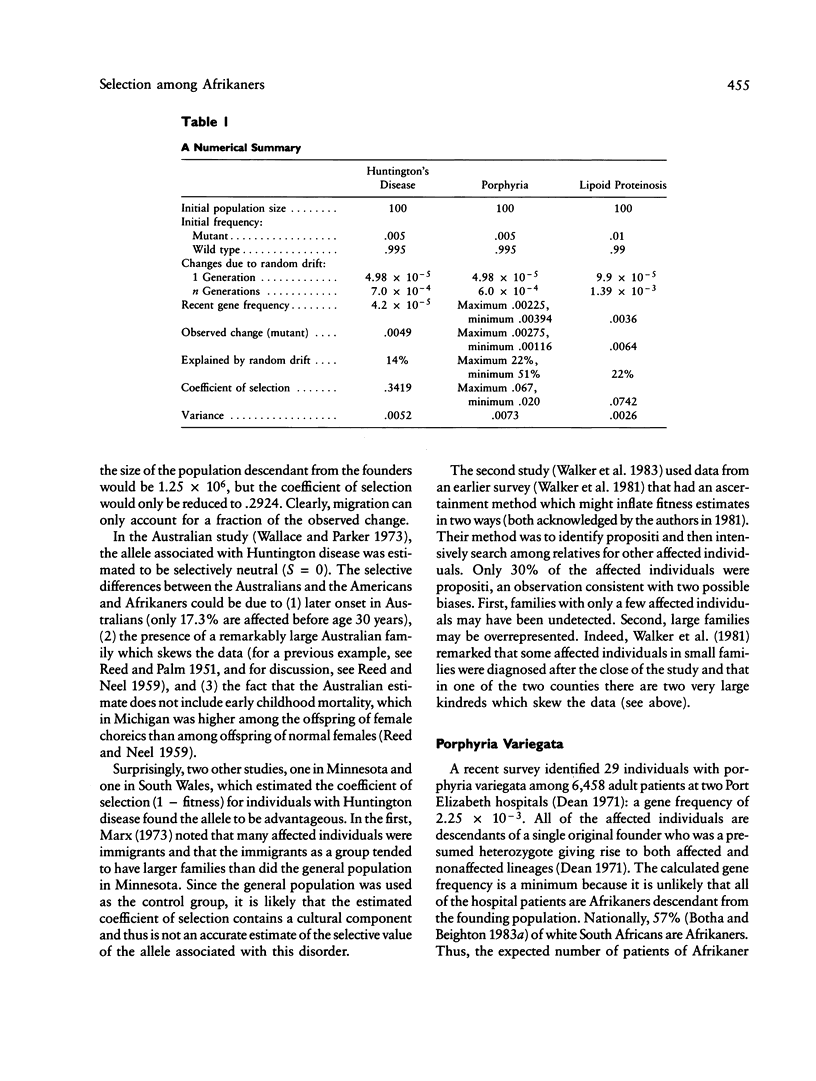
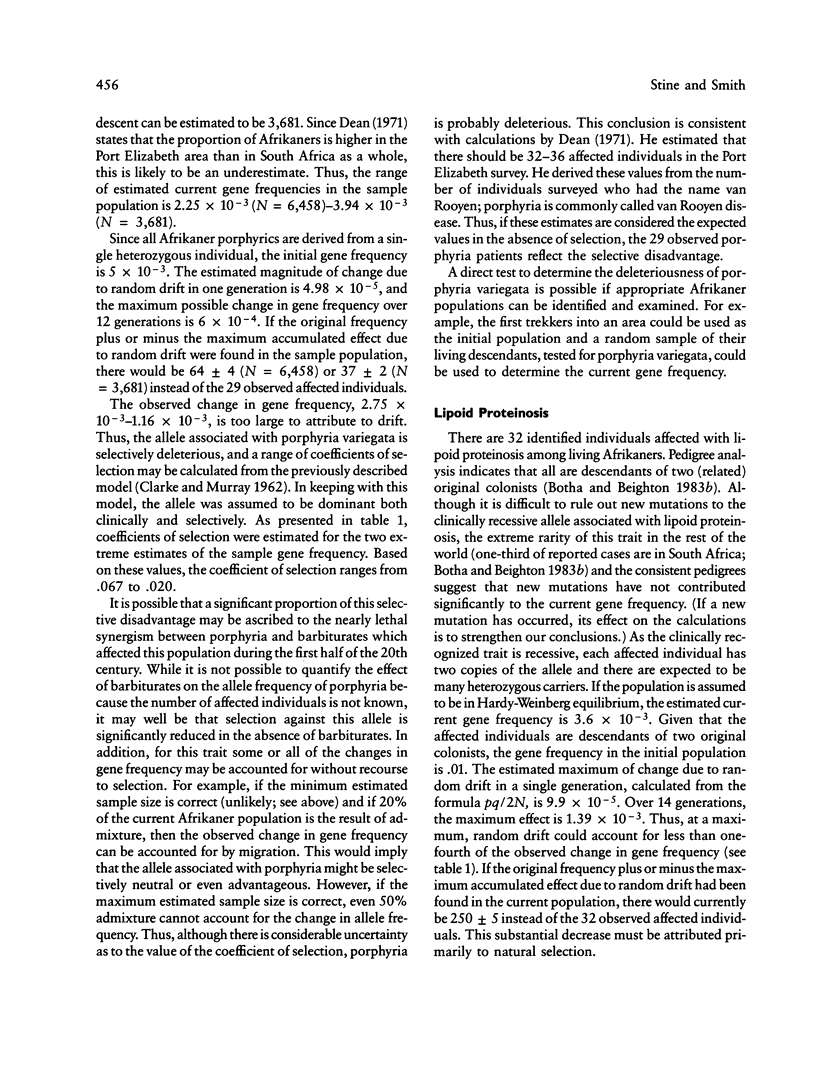
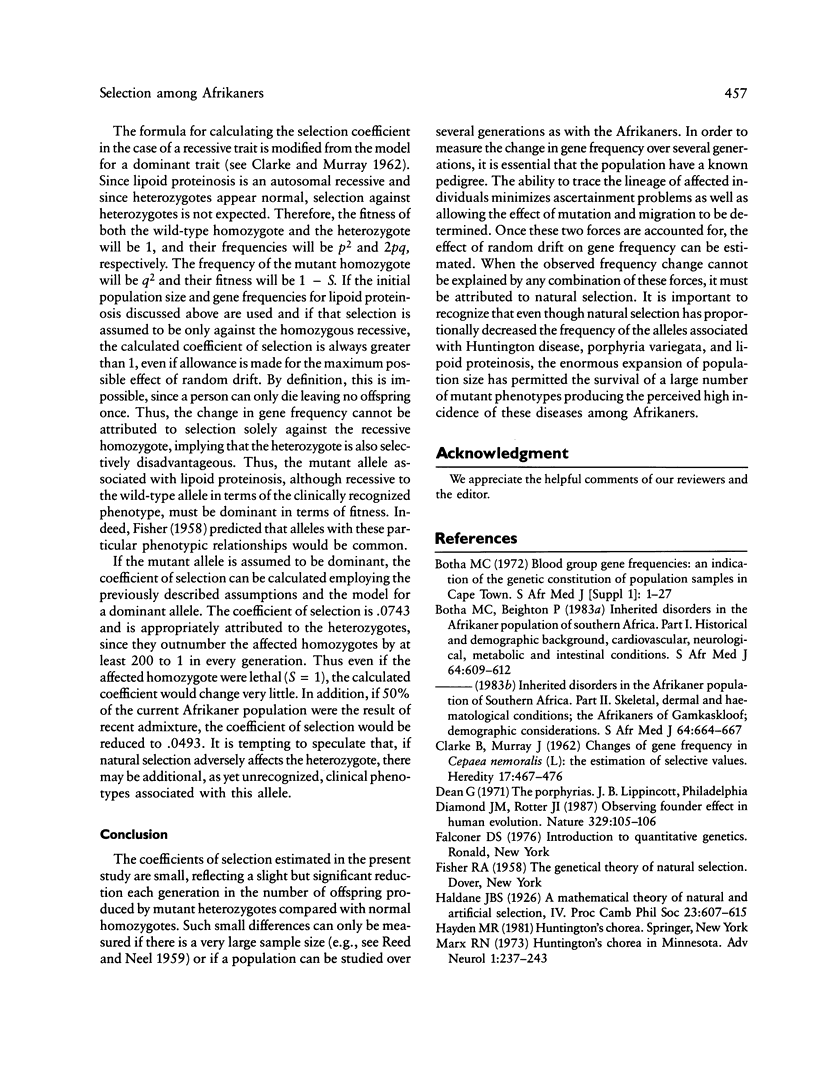
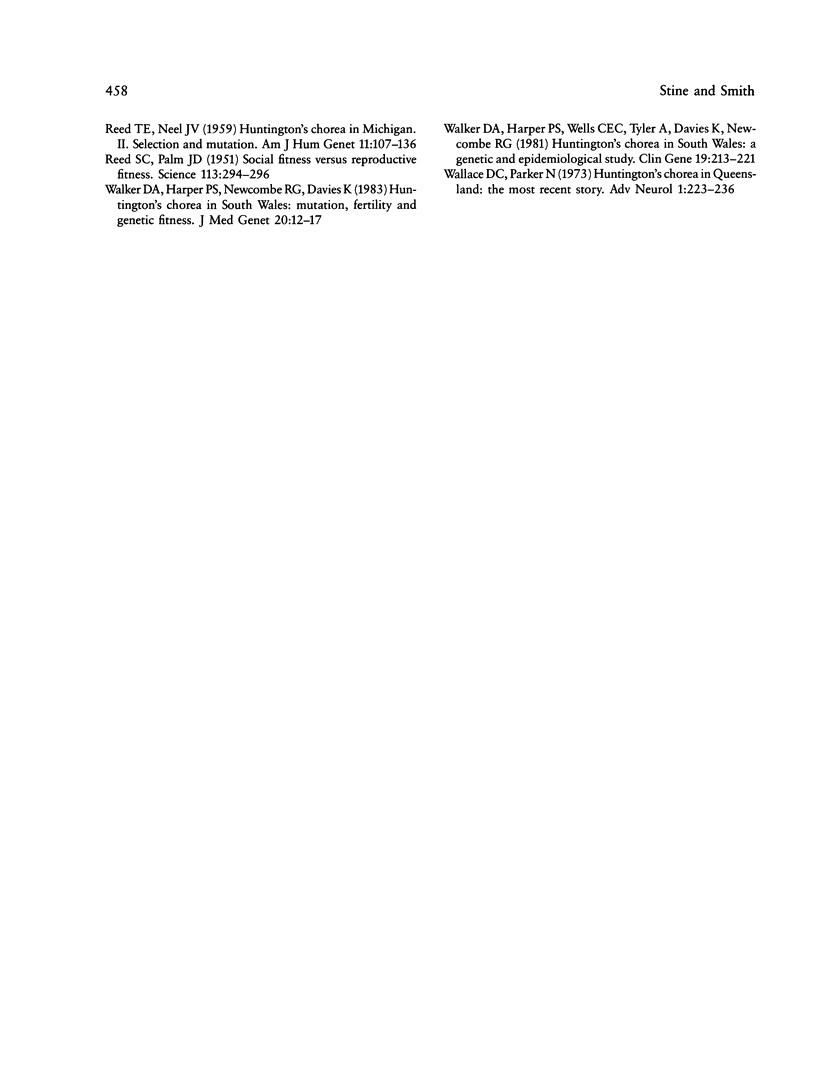
Selected References
These references are in PubMed. This may not be the complete list of references from this article.
- Botha M. C., Beighton P. Inherited disorders in the Afrikaner population of southern Africa. Part I. Historical and demographic background, cardiovascular, neurological, metabolic and intestinal conditions. S Afr Med J. 1983 Oct 8;64(16):609–612. [PubMed] [Google Scholar]
- Botha M. C. Blood group gene frequencies. An indication of the genetic constitution of population samples in Cape Town. Am J Roentgenol Radium Ther Nucl Med. 1972 May;115(1 Suppl):1–27. [PubMed] [Google Scholar]
- Diamond J. M., Rotter J. I. Observing the founder effect in human evolution. Nature. 1987 Sep 10;329(6135):105–106. doi: 10.1038/329105a0. [DOI] [PubMed] [Google Scholar]
- REED S. C., PALM J. D. Social fitness versus reproductive fitness. Science. 1951 Mar 16;113(2933):294–296. doi: 10.1126/science.113.2933.294. [DOI] [PubMed] [Google Scholar]
- REED T. E., NEEL J. V. Huntington's chorea in Michigan. 2. Selection and mutation. Am J Hum Genet. 1959 Jun;11(2 Pt 1):107–136. [PMC free article] [PubMed] [Google Scholar]
- Walker D. A., Harper P. S., Newcombe R. G., Davies K. Huntington's chorea in South Wales: mutation, fertility, and genetic fitness. J Med Genet. 1983 Feb;20(1):12–17. doi: 10.1136/jmg.20.1.12. [DOI] [PMC free article] [PubMed] [Google Scholar]
- Walker D. A., Harper P. S., Wells C. E., Tyler A., Davies K., Newcombe R. G. Huntington's Chorea in South Wales. A genetic and epidemiological study. Clin Genet. 1981 Apr;19(4):213–221. doi: 10.1111/j.1399-0004.1981.tb00701.x. [DOI] [PubMed] [Google Scholar]


